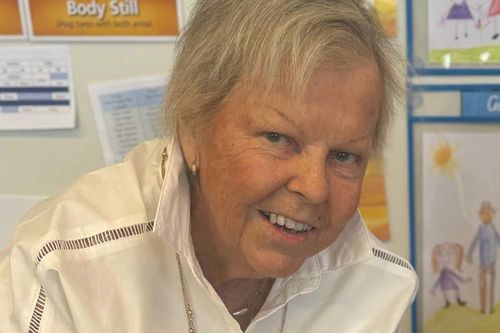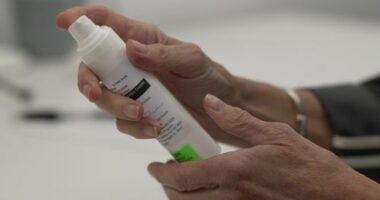Share this @internewscast.com
When Wendy Clift went for a routine breast scan in 2007, she got call from her doctors almost immediately.
“The news wasn’t good,” the widowed grandmother of two from Scone in regional NSW told 9news.com.au.

Just days later, she had a mastectomy, followed by more treatment.
While it was successful in keeping her in remission for a few years, the cancer has now returned and it has spread.
However, Clift, now 72, was invited to be part of a new Australian drug trial.
It’s hoped it could help patients with a certain kind of breast cancer live longer.
The DIAmOND clinical trial indicated that introducing dual immunotherapy alongside existing treatments might be beneficial for some patients suffering from advanced HER2-positive breast cancer.
Clift said her cancer appears to be “pretty stable” after the trial earlier this year, which she did at Lake Macquarie Private Hospital.
Some of the cancerous lumps she had have even disappeared, though she doesn’t know if that’s due to the new drug combination.
Clift said she didn’t have side effects.
She said taking part in the trial was less about her and more to help future patients.
“I’m just prepared because whatever happens to me is neither here nor there, but hopefully in years to come it’ll help somebody else,” she said.
Immunotherapy is a treatment that uses a person’s immune system to treat certain cancers.

The other drug used alongside this in the trial was trastuzumab, commonly known as Herceptin.
The trial focused on determining whether the combination could extend the period during which cancer remained controlled in patients with advanced conditions that had developed resistance to trastuzumab.
Results differed depending on the kind of cancer each of the 68 trial patients had.
Some had a response rate of up to 63 per cent, while for other kinds it was 27 per cent.
Some patients saw their cancer controlled for more than two years.
The combination of drugs has been given previously to people with lung cancer.
Professor Sherene Loi developed and led the trial, which was conducted by the research organisation Breast Cancer Trials.
“The encouraging findings imply that pairing new immunotherapy treatments with trastuzumab could provide a new treatment avenue for those with treatment-resistant HER2-positive breast cancer,” Loi stated.
“These findings provide a compelling case for further exploration and how we can best integrate this treatment combination into clinical practice.”
What is HER2-positive breast cancer?
HER2-positive breast cancer is a type of breast cancer that tests positive for a protein called human epidermal growth factor receptor 2 (HER2).
However, it often responds well to specific treatments.
Around 15-20 per cent of all types of breast cancers are HER2-positive.
It is more common in younger, pre-menopausal women.












